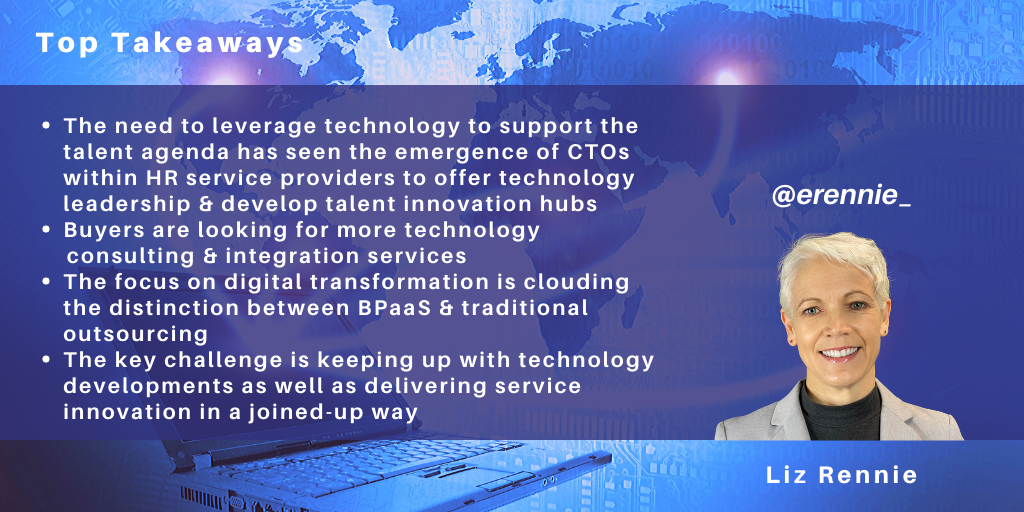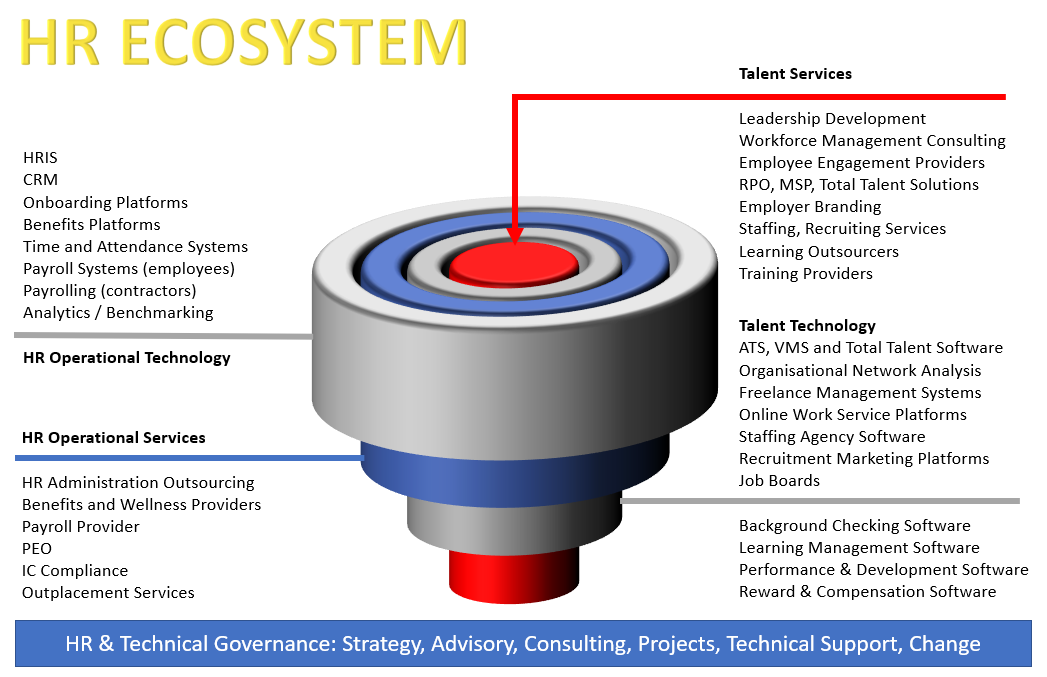posted on Feb 12, 2020 by Elizabeth Rennie

Having stepped back into an HR analyst role at NelsonHall, it’s clear to me that we can’t emphasise enough the increasing importance of talent and the need to leverage more technology in the HR function to be competitive. These two themes are unlikely to surprise. Over the last six months, I’ve heard how big companies such as large IT firms are experimenting with shrinking recruitment sourcing teams and building talent intelligence teams instead. How is this changing the shape of the HR ecosystem? And what’s next?
NelsonHall recognises four key components of the HR ecosystem. These relate to Talent Services, Talent Technology, HR Operational Technology, and HR Operational Services, with talent being at the core as the primary driver of organizational growth and competitiveness.

As we enter the new decade, the two most significant changes to the shape of the HR ecosystem are:
- The growing importance of Talent Services: Talent shortages mean that talent-related services are becoming more important to drive organizational competitiveness and growth. As a result, the services supporting talent have seen more focus on employer branding and building strong cultures
- Technology’s focus on experience: As the labor market tightens, employee experience becomes more relevant and employees become true consumers. All activities that impact the employee experience can have an impact on the bottom line. Onboarding, benefits, engagement, recognition, and even payroll, can play a part.
The technology-experience focus needs to be tempered with an acknowledgment that employee experience is also as much about human engagement and rapport building in a company. However, HR undoubtedly has an active part to play in ensuring smooth employee onboarding and ensuring employees feel appreciated through effective practices and leadership development.
As a result of the increasing importance that talent vendors and buy-side organizations are putting on building the best experience, new partnerships with employee engagement companies such as Qualtrics (example here) are forming. Further, we are seeing candidate experience and employee experience now firmly at the heart of many HR technology roadmaps. Leveraging social platforms that provide on-demand learning for employees and recruitment marketing and social media listening tools such as TalkWalker and Crystal Knows are also ways that companies are innovating to stay ahead of the competition for talent. As mobile-first and omni-channel processes are adopted through the latest HR technology releases, the HR operational function will accordingly also need to adapt. The HR functions themselves are at risk of being the weakest link.
What’s next? The convergence of marketplaces
Challenged to keep up with technology innovation in the marketplace, traditional HR service providers have placed greater emphasis over the last five years on technology innovation than service innovation. Technology and service providers are beginning to build stronger technology partnerships supported through API connectors and developing marketplaces for additional services. The market has also seen a significant number of senior CTO appointments announced as well as the set-up of technology innovation hubs by providers.
Buyers are similarly challenged to keep up with technology innovation to the extent that they are relying on their providers to deliver greater technology guidance across the wide array of solutions, demanding stronger technology consulting and integration services than before.
Further, traditional outsourcing providers are beginning to focus on digital outsourcing solutions that look at end-to-end processes and process efficiency to help clients knit together the different technologies and plug the technology gaps and work-arounds, clouding the distinction between BPaaS and traditional outsourcing.
Alongside these technical developments, it is worth noting that, as the employee value to an organization grows, the demand for high-quality service and, in some cases, a white glove HR service, for employees still lives on and is not expected to disappear. The challenge will be which service providers are adequately able to fulfill both the technology challenges and service innovation in a joined-up way? How many vendors still give attention to end-to-end service and not just the technology?
